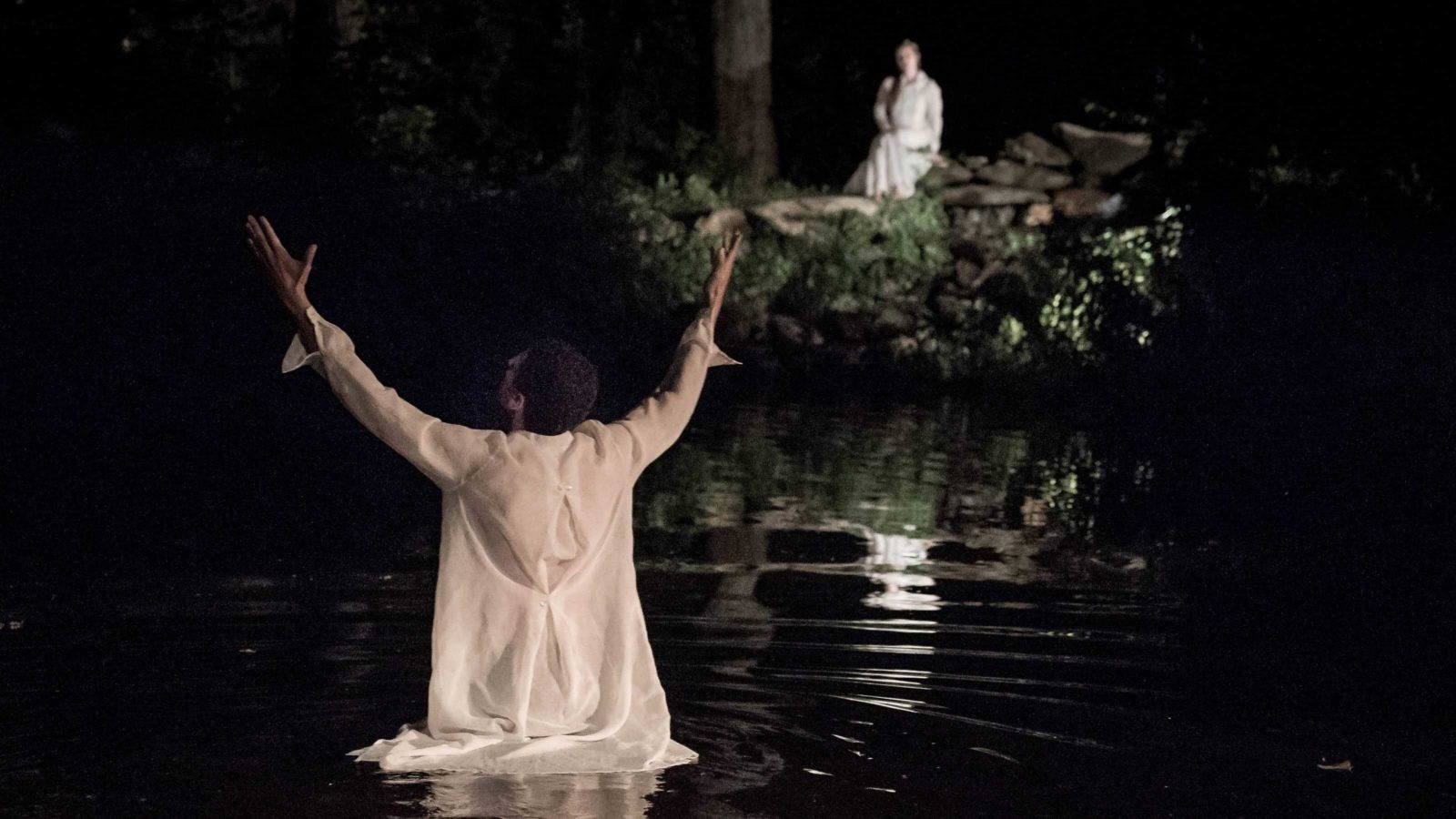“And there was anger and anguish. And forced silence.”
Lucy Stone is looking across a table in kerosene lamplight. In the summer dusk, she welcomes guests to rest with her in the hayfields. She is a farmer’s daughter from West Brookfield in a workaday skirt and sweater.
She is a blunt hill woman who grew up churning milk and raising chickens. And she saw her mother having to beg her father for money — for the money her mother had made herself from cheese and eggs. Stone’s father was tight-fisted, and he drank. Her family had one will, she says, and it was his.
But she has her own, and she will not budge.
In 1847, Lucy Stone became the first woman from Massachusetts to graduate from college. She became a national leader, an abolitionist and suffragist. And she is speaking out of a night in 1893, when Colorado became the first state in the union to give women the right to vote — three weeks after she died.
She returns this summer to a farm in the hilltowns in Double Edge Theatre’s immersive performance, We the People.
The show begins at dusk and moves around the farm as night comes. Actors emerge from firelight, and a half moon is rising. Birds take off along the river. The actors and the audience walk together through the fields and along the water, singing spirituals.
“We want the borders to be porous,” said Matthew Glassman, who appears as Henry S. Ranney. He grew peppermint and lavender on this land 200 years ago and defended abolition at town meetings.
In a timber-frame barn, a young W.E.B. DuBois looks across a wide hall full of young black men and women at Fisk University and dreams of the rivers of Africa.
Samuel Nightingale wades across a stream to a wood fire that smells like lighted sage. He lived up the road in a stone tower and foraged for wild blueberries and milkweed, and was denied burial in the churchyard.
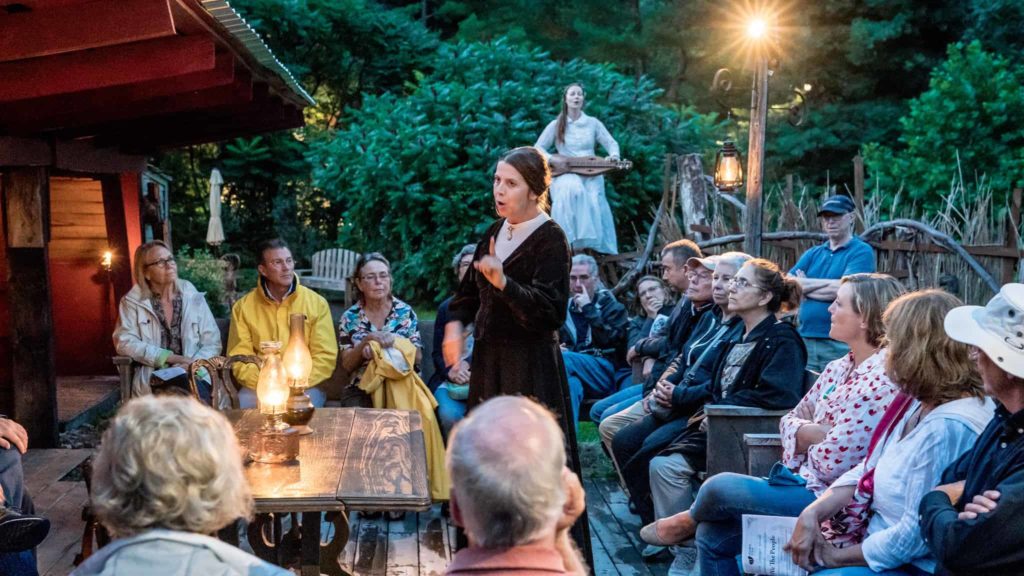
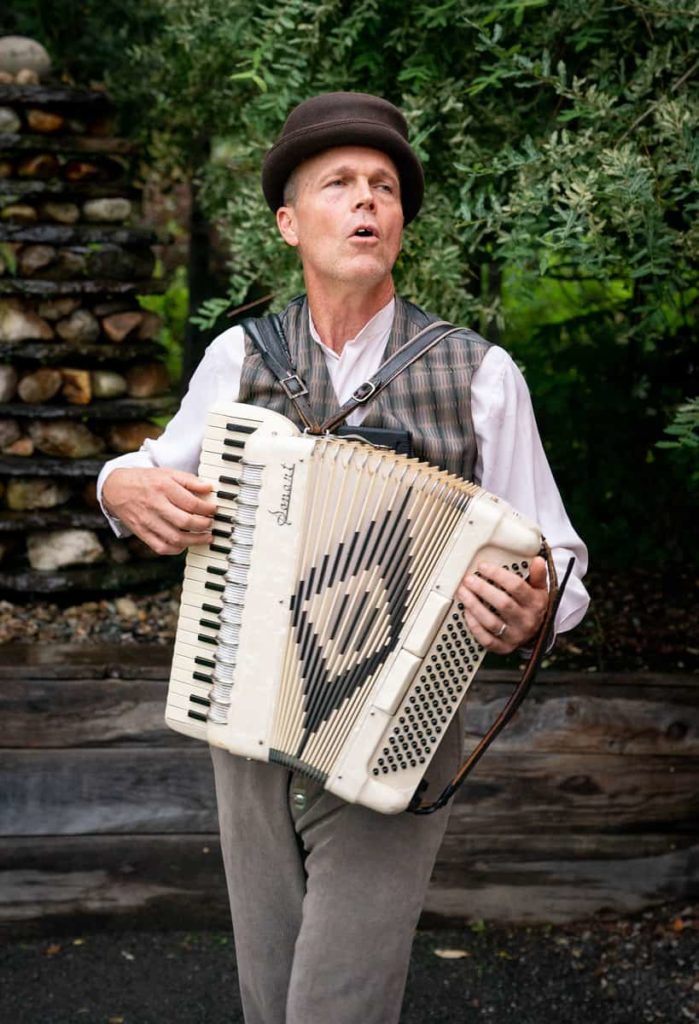
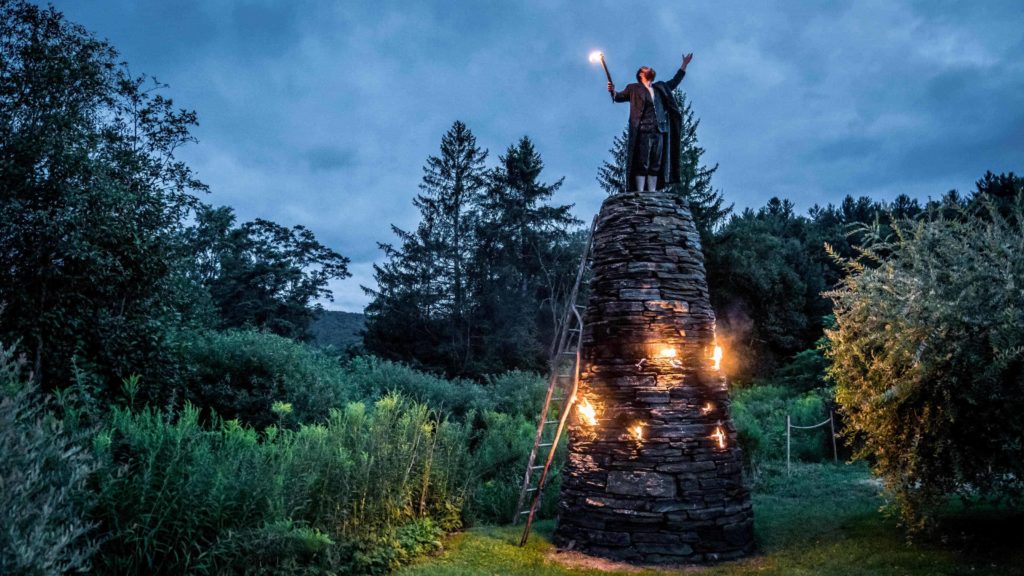
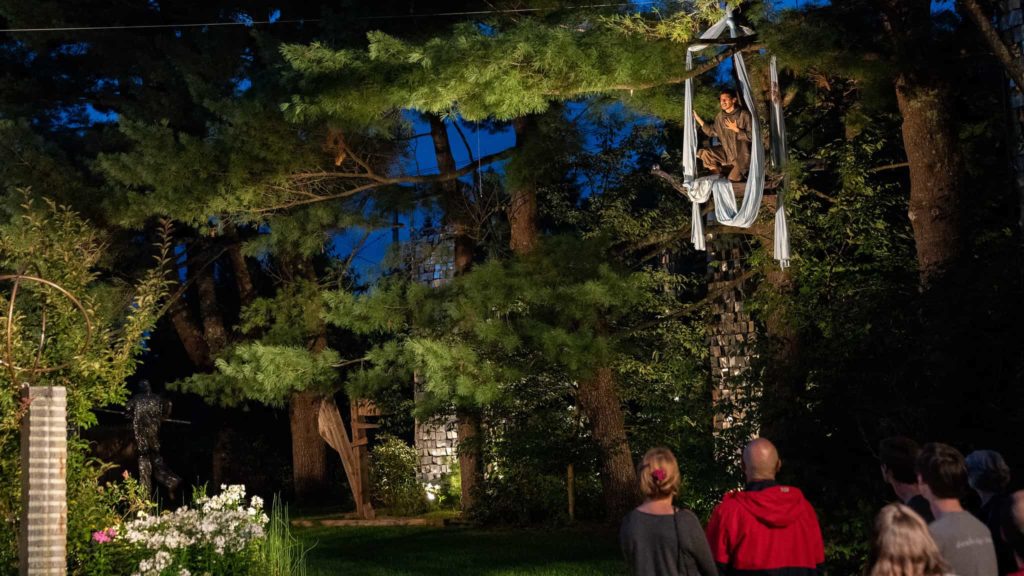
We the People began as a local project, said artistic director Stacey Klein. She founded Double Edge in Boston and moved it here to Ashfield 20 years ago, and the company and the campus are still growing. A year ago she imagined a performance with artists of the hilltowns, to celebrate the history and art of the region, the Nipmuck and the Mohican nation, colonists and immigrants, abolitionists and suffragists. And this performance has evolved since in months of rehearsal.
Carlos Uriona invented Giuseppe the cobbler, who sailed from Napoli to South America and worked his way across many countries. Uriona drew on his own family, he said; they came came from southern Italy to Argentina. They worked in the mills, like families in Pittsfield, and they marched like the workers in the Bread and Roses strike in Lawrence.
Stone worked alongside Susan B. Anthony and Elizabeth Cady Stanton, said Jennifer Johnson, who plays her and has researched her life.
Few people know Stone now, she said, because Stone supported the rights of black voters. She knew Frederick Douglass, and they wrote to each other. She began as an abolitionist, and she broke from Anthony and Stanton at a point in the women’s suffrage movement when white women turned their attention away from black allies who were also fighting for rights and recognition.
She may not have had the chance to meet W.E.B. DuBois; he was a young man when she was an old woman. But they shared a kind of loneliness and integrity, Johnson said.
“You see what that kind of life takes.”
DuBois answers Stone in a flight from his first speculative story, The Megascope — a machine to see across time and space into an alternate world. He wrote many short stories, said Travis Coe, who has spent more than a year steeped in DuBois’ writing.
Coe plays a young DuBois, an adventurer with a dream of the future.
“How can we conjure this magic,” he asks, “Black magic, African magic? I have been reading his short stories and imagining the world he is creating when he was about my age. He was at Fisk and getting into Harvard. He’s seeing his people,” a world of young black students, for the first time.
At Fisk DuBois hears the Jubilee singers. He edits the campus newspaper. But he has just moved from Great Barrington to the South.
“His mother and his grandfather die,” Coe said. “He has no one but work. And he sees lynchings for the first time.”
He sees a larger world and the force of brutality, poverty and lack of education. His determination moves Coe deeply.
“It gives hope,” he said, “even though we are going through this time. After the election we all needed to be together. And for me, this is a chance to bring my full self — my hope and despair, true beauty and imagination. It’s so important that I can share my whole self, and it’s so hard to do in a time when people are getting shut down and not allowed into the country. But we have amazing black art and culture, and black people in roles of power. And here I can be a superhero every day.
“I’m so happy to do this work in this place and to wake up every day with this man. To be guided by his words and prophesies is a gift, and anyone who can be with him for a time can experience that hope.”
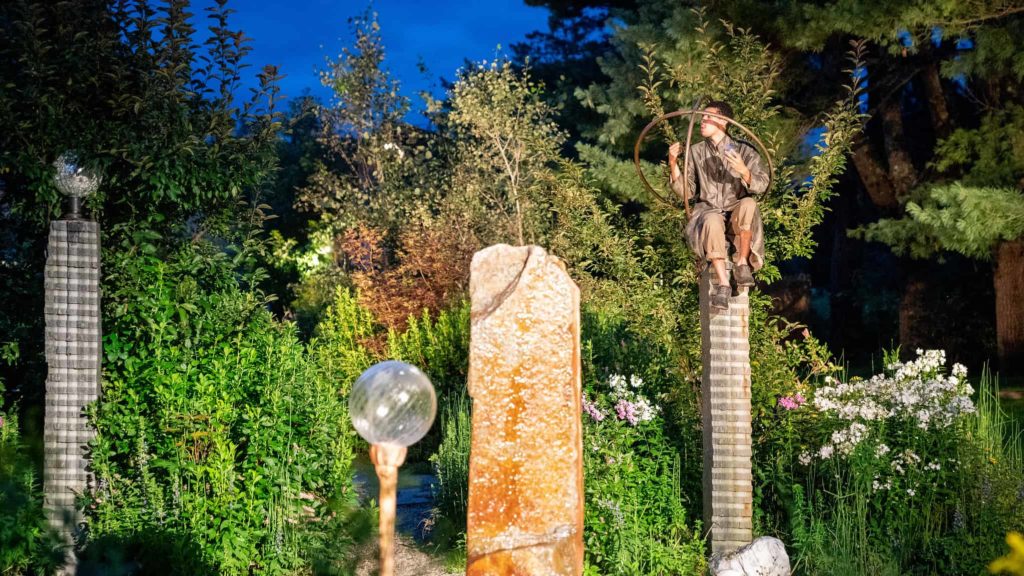
Travis Coe performs as W.E.B. DuBois in Double Edge Theatre's 'We the People.'
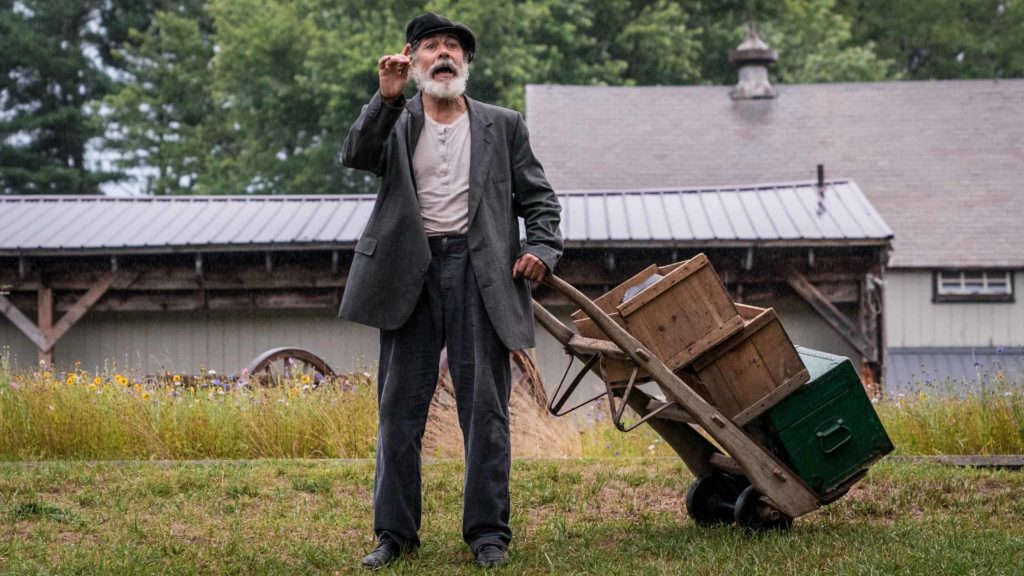
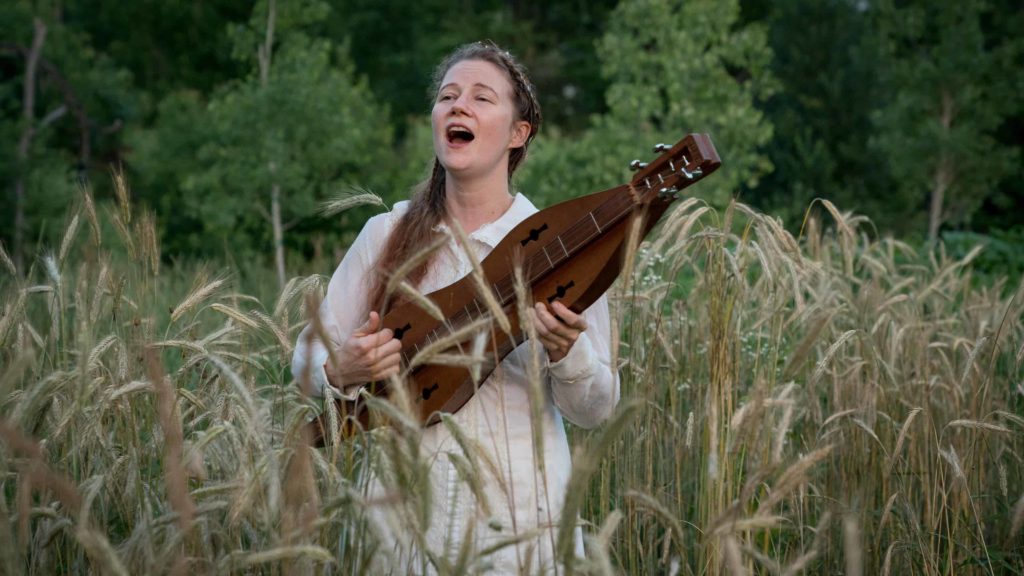
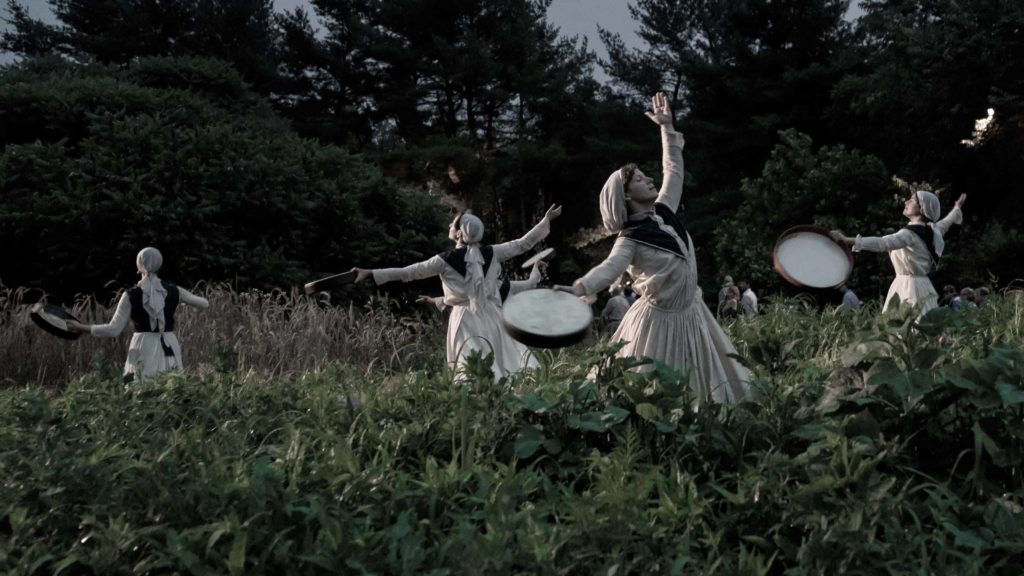
This story first ran in the Berkshire Eagle in summer 2018. My thanks to Arts & Entertainment editor Jeff Borak.

